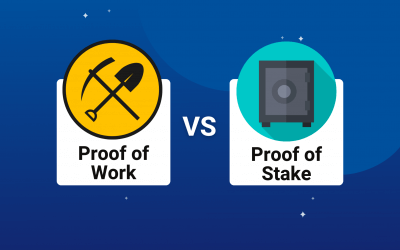How to Buy Bitcoin in Canada: A Step-by-Step Guide for Canadians

Keep up to date with Bitcoin on Bitcoin.org
Keep up to date with Ethereum news on Ethereum.org
Buying Bitcoin in Canada is as easy as using a well-known platform like Netcoins, Bitbuy, or Coinberry. These platforms are favored for their low trading fees and user-friendly interfaces which cater to both new and experienced traders. But beyond just ease of use, they offer a level of security by adhering strictly to Canadian regulations for digital currency transactions. And guess what? You’re not just limited to one way of paying for your transactions. With options ranging from good old bank transfers, wires to the lightning-quick Interac e-Transfer, convenience is key. Ready to start buying?
To buy Bitcoin in Canada, you can start by creating an account on a Canadian cryptocurrency exchange such as Netcoins. Once your account is verified through the KYC process, you can then deposit Canadian dollars into the exchange using Interac eTransfer or Bank Wire, and proceed to make your Bitcoin purchase. After buying Bitcoin, it’s important to consider secure storage options such as using a software or hardware wallet for added security.
Top Bitcoin Exchanges in Canada
When it comes to buying Bitcoin in Canada, having a reliable and user-friendly exchange is essential. Three prominent names that frequently emerge are Netcoins, NDAX, and Coinberry. Each of these platforms offers unique features and benefits tailored to meet various trading needs.
Netcoins has gained popularity for its low trading fees and intuitive interface, making it an appealing choice both for newcomers entering the world of cryptocurrency trading and seasoned traders who prioritize cost-efficiency. Moreover, one of Netcoins’ key strengths lies in its commitment to providing rapid transaction times, allowing users to execute trades swiftly. This emphasis on speed not only enhances user experience but also offers a competitive edge amidst the bustling crypto market.
Emphasis on Compliance and Security
Furthermore, Netcoins places a strong emphasis on compliance with Canadian regulations, ensuring a secure trading environment for its users. This focus on adhering to regulatory standards serves as a testament to the platform’s commitment to safety and transparency. As a registered Money Service Business (MSB) with FINTRAC and being fully regulated and registered with the Canadian Securities Administrators (CSA), Netcoins provides users with the assurance of operating within a legally compliant framework.
In addition to regulatory compliance measures, Netcoins leverages blockchain analytic and forensic tools as an added safeguard, offering users a comprehensive security infrastructure.
By prioritizing rapid transaction times and stringent adherence to regulations, Netcoins continues to distinguish itself as a trustworthy and secure platform for cryptocurrency trading.
Bitbuy, another prominent player in the Canadian crypto space, boasts advanced features designed to cater to both individual and institutional trading needs. The platform’s competitive pricing, sophisticated smart order technology, and deep liquidity for trades exceeding $25k position it as an appealing option for traders seeking greater trading volumes.
Secure Custody Measures
Netcoins places significant emphasis on secure custody solutions, leveraging multi-signature wallet technology and multi-party computation (MPC) to uphold robust asset protection standards. Additionally, the expertise of Netcoins’ sales traders and operations staff—accumulating over 40 years of combined experience in the crypto industry—further exemplifies the platform’s commitment to facilitating efficient and secure trades.
Coinberry stands out for its accessibility and user-friendly interface tailored towards simplifying the process of purchasing cryptocurrencies for both individuals and institutions. The platform’s dedication to offering a seamless trading experience is underpinned by its fiat funding methods inclusive of Interac e-transfer, Bank Transfer, and Bank Wires for both USD and CAD—providing users with versatile options for funding their accounts.
Automated KYC/KYT Processes
Moreover, Coinberry prioritizes secure onboarding processes through automated Know Your Customer (KYC) and Know Your Transaction (KYT) procedures, contributing to heightened security measures across its operations. Compliance with legislative requirements serves as an additional hallmark of Coinberry’s commitment to transparency, bolstering trust among its users by aligning with established legal frameworks.
As we’ve examined some of the leading Bitcoin exchanges in Canada and their standout features, it becomes evident that each platform offers distinct advantages catering to diverse user preferences and trading objectives. These exchanges not only provide accessibility for buying Bitcoin but also prioritize robust security measures to safeguard user interests at every step.
Choosing a Payment Method for Bitcoin Purchase
When it comes to buying Bitcoin, one of the most crucial decisions you’ll make is choosing a payment method. Different methods offer various advantages, and it’s essential to select one that aligns with your specific needs. In Canada, users can choose from various options, including Interac e-Transfer, bank transfer, or bank wire.
Let’s break down the options available:
Interac e-Transfer
If you’re seeking a quick way to fund your trading account, Interac e-Transfer is a popular choice. It offers fast processing times compared to traditional bank transfers, enabling you to start trading Bitcoin without unnecessary delays. This method often requires minimal effort and can expedite the funding process, making it a convenient option for many users.
Bank Transfer
On the other hand, bank transfer is another widely-used method for purchasing Bitcoin in Canada. While it may not be as fast as Interac e-Transfer, bank transfers are known for their reliability and security. Many users appreciate the familiarity and ease of initiating transfers directly from their bank accounts. Additionally, this method may also offer competitive fee structures, making it an attractive option for those looking to minimize transaction costs.
Bank Wire
For larger transactions, utilizing bank wire may be preferable due to potentially lower fees associated with this method. While it may involve slightly longer processing times compared to other payment methods, bank wire is often favored by individuals looking to execute substantial Bitcoin purchases efficiently and cost-effectively.
It’s important to consider aspects such as processing time, fees, and transaction limits when narrowing down your choice of payment method. By selecting the most suitable option based on your specific requirements, you can streamline the process of acquiring Bitcoin and ensure a seamless trading experience.
Ensuring a smooth Bitcoin buying experience also involves setting up a secure wallet to store your digital assets. Let’s now explore the meticulous process of establishing a Bitcoin wallet.
Process of Setting Up a Bitcoin Wallet
Getting into the world of Bitcoin requires setting up a digital wallet to securely store your cryptocurrency. Just like a real wallet, a Bitcoin wallet is where you keep your “digital money”. There are different types of Bitcoin wallets available and choosing the right one depends on how much security you need and how often you plan to use your funds.
Understanding Wallet Types: When it comes to Bitcoin wallets, there are a few different types to choose from—hardware wallets, software wallets, and mobile wallets. Each has its own set of perks and drawbacks, catering to various user preferences and needs.
-
Hardware Wallets: These physical devices are specifically built to store Bitcoin and other cryptocurrencies. They are considered one of the most secure options as they store your private keys offline, making them immune to hacking attempts. While they offer top-notch security, the downside is that they come with a price tag and aren’t as convenient for frequent trading.
-
Software Wallets: These digital applications or programs can be accessed on your computer. They are more convenient than hardware wallets and can be further categorized into hot wallets (connected to the internet) and cold wallets (offline). Software wallets tend to provide a good balance between security and accessibility for regular users.
-
Mobile Wallets: These apps designed for smartphones provide quick access to your Bitcoin on the go. They strike a balance between convenience and security, making them ideal for everyday transactions. However, due to their reliance on an internet connection, they may not be as secure when compared to hardware or software wallets.
Regardless of the type you choose, what matters most is keeping it secure. So, let’s explore the steps involved in creating and setting up your Bitcoin wallet.
Creating Your Wallet
Creating your Bitcoin wallet typically involves signing up with a wallet provider and generating a unique wallet address. This address functions like an account number in traditional banking—it’s what you share with others to receive Bitcoin.
-
Signing Up: Choose a reputable wallet provider that aligns with your wallet type preference. Once you have made your choice, visit their website or download their app to sign up. You’ll typically need to provide an email address and create a strong password to protect your account.
-
Generating a Wallet Address: After signing up, you’ll go through the process of generating a unique receiving address for your wallet. This address is what others will use to send Bitcoin to you. It’s important to keep this address safe and avoid sharing it with anyone unless you intend to receive funds from them.
-
Backup Your Wallet: Most wallets will prompt you to create a backup of your wallet using a recovery phrase or mnemonic seed. Make sure you follow this step as it can be crucial if you ever lose access to your wallet or device.
Remember, when creating your wallet, it’s crucial that you double-check the legitimacy of the provider to ensure the safety of your funds.
You’re well on your way to setting up your very own Bitcoin wallet! But wait, there’s more; once you have set up your wallet, you’ll be ready for the next thrilling step—buying some Bitcoin. So, let’s move onto that exciting part next!
Breakdown of Fees for Buying Bitcoin
When buying and selling Bitcoin, understanding the different fees involved is crucial. These fees can vary from platform to platform and can have a significant impact on your overall investment. Let’s break down the main types of fees you need to consider when buying Bitcoin in Canada.
Trading Fees
Trading fees are usually charged by the platform for executing trades. This fee can be calculated as a percentage of the total transaction amount or as a fixed fee per trade. It’s essential to be aware of the trading fees, as they can eat into your profits or increase your losses if you’re not careful. Platforms like Netcoins offer competitive trading fees, making it cost-effective for users to buy and sell Bitcoin.
Deposit and Withdrawal Fees
Depositing and withdrawing funds from your account can also incur fees, depending on the method you use. Common deposit methods include bank transfers, Interac e-transfer, and credit/debit card purchases, each with its own associated fees. Similarly, withdrawal methods such as bank transfers or wire transfers may also have associated charges. Understanding these fees upfront can help you make informed decisions about how you fund your account and access your funds when needed.
Network Fees
Network fees, also known as blockchain or miner’s fees, are charges associated with processing and validating transactions on the Bitcoin network. These fees are paid to miners who verify and add transactions to the blockchain. The network fee can fluctuate based on network congestion and transaction priority. It’s crucial to factor in network fees when buying or selling Bitcoin, as they can impact the speed and cost of your transactions.
Netcoins Advantage: Zero Funding Fees
Netcoins stands out by offering zero funding fees for easy money in and out transactions. This means that users can deposit and withdraw funds without incurring additional charges, allowing for seamless and cost-effective transactions.
In summary, understanding the various types of fees associated with buying Bitcoin in Canada is essential for making informed investment decisions. With Netcoins’ commitment to zero funding fees and competitive trading costs, users can benefit from a transparent fee structure that supports their crypto investment journey.
Navigating through the intricacies of cryptocurrency investments involves not only understanding the related costs but also ensuring safety through rigorous verification procedures. Let’s delve into the realm of security measures and verification steps for a secure crypto journey.
Security Measures and Verification Steps
When purchasing Bitcoin in Canada, it’s not just about the convenience and cost. Ensuring that you’re doing it safely is vital. This is why platforms like Netcoins prioritize security through automated KYC processes and utilize blockchain analytic and forensic tools as additional safeguards to protect user transactions and funds.
-
Know Your Customer (KYC) Process: When you sign up for a crypto exchange like Netcoins, you’ll go through a KYC process. This usually involves providing identification documents to prove who you are, including details like your name, address, and date of birth. You’ll also need to verify your email and phone number.
-
Automated KYC Processes: Netcoins takes security seriously, employing automated processes to swiftly verify customers without compromising on safety. Fast verification is crucial when buying Bitcoin because it means you can start trading sooner.
-
Blockchain Analytic and Forensic Tools: These tools are used to monitor transactions on the blockchain. By doing this, exchanges can detect any suspicious activity and take action to protect their users from potential scams or fraud.
It might seem like a lot of information upfront, but all these measures help keep your transactions private and secure. Plus, they ensure that everyone using the platform is who they say they are.
Netcoins prioritizes security through automated KYC processes and leverages blockchain analytic and forensic tools as additional safeguards.
Think of it this way: Just like you’d want to show ID when going into a bank to prove who you are when conducting important financial transactions, doing the same for buying Bitcoin helps maintain the integrity of the system.
Some people might find the KYC process a hassle, but it’s important for protecting both the individuals using the platform and ensuring transparency as part of regulatory compliance. After all, peace of mind often comes attached with these security measures in place.
By understanding these security measures and verification steps, you can feel more confident about engaging in Bitcoin transactions, knowing that your identity is secure and protected throughout the process.
Understanding these critical security measures sets the stage for an exploration into the world of Bitcoin trading—a world rife with potential profits and equally matched levels of risk.
Understanding Bitcoin Trading
Bitcoin trading may initially seem complex, but once you get the hang of it, it opens up a whole new world of financial opportunities. Essentially, Bitcoin trading involves buying and selling Bitcoin with the aim of making a profit. This activity is carried out on cryptocurrency exchanges where users can engage in spot trading, which involves transactions that are settled immediately, or they can explore more advanced trading options such as setting limit orders to execute trades at specific prices.
Spot Trading
Spot trading is the most straightforward form of trading cryptocurrencies and involves buying or selling assets at the current market price. It’s just like going to the store and buying an item for its listed price without any additional conditions. In the context of Bitcoin, spot trading allows users to quickly buy or sell Bitcoin at its current market value.
Setting Limit Orders
For those interested in more strategic and precise trading, setting limit orders is a valuable tool. When you place a limit order, you’re essentially setting a specific price at which you want to buy or sell Bitcoin. For example, if the current market price for Bitcoin is $50,000, and you want to buy when it reaches $45,000, you can set a limit order to ensure that your purchase occurs only when the price hits that level.
Setting limit orders can be advantageous for traders who have specific price points in mind and want to automate their trades based on their predetermined criteria. This feature allows traders to set parameters for their transactions without needing to constantly monitor market movements.
By using these advanced trading features, traders can optimize their entry and exit points in the market and potentially capitalize on favorable price movements. It’s important for users to familiarize themselves with these options before engaging in active trading.
Let’s say you’ve been tracking Bitcoin’s price trends and have identified a potential downward trend approaching. In this case, you may choose to set a limit order to automatically buy Bitcoin when its price reaches a certain level that you believe presents a good buying opportunity.
Understanding these nuances of Bitcoin trading will allow you to approach the market with greater insight and strategy, ultimately empowering you to make informed decisions when buying and selling Bitcoin.
Safe Withdrawal of Bitcoin
So, you’ve acquired Bitcoin, and now you want to withdraw and store it in an external wallet. It’s crucial to do this safely because your Bitcoin is valuable, and you want to ensure its security. When withdrawing Bitcoin to an external wallet, there are key best practices to follow to ensure the safety of your investment.
First off, it’s crucial to understand what a private key is. A private key is a secret combination of letters and numbers that gives you access to your Bitcoin. It’s like a password that should never be shared with anyone else. Think of it as the key to your Bitcoin house; whoever has the key has access.
When withdrawing Bitcoin to your own external wallet, you’ll receive a private key associated with that wallet, granting you access and control over your stored cryptocurrency. Storing this private key securely is vital.
Some people write their private keys down on a piece of paper or store them in digital files which they encrypt for safekeeping. You could also use hardware wallets which store your private keys offline.
One essential practice is creating a backup of your private key or seed phrase. This ensures that if anything happens to the original copy, you have another way to access your funds. Losing your private key can lead to permanent loss of access to your Bitcoin, so having multiple secure copies is crucial.
Remember, treat your private key with extreme care. Do not take pictures of it or share it with anyone. Ensure that any digital files containing your private key are encrypted and protected by strong passwords.
In addition, always verify the authenticity of the receiving address before initiating a withdrawal. Scammers may attempt to trick individuals into sending Bitcoin to fraudulent addresses, resulting in irreversible loss.
Imagine if someone picked up a letter with money inside but changed the address on it before dropping it in the mailbox. That money would never get back to its intended recipient, right? The same concept applies here. Always double-check where you’re sending your Bitcoin.
Lastly, regularly updating your antivirus software and using a secure network connection when managing or transferring cryptocurrency can guard against potential threats such as malware or phishing attempts aiming to steal private keys.
By following these best practices for securing and managing your private keys associated with your external Bitcoin wallet, you can minimize the risk of unauthorized access and potential loss of funds while ensuring the safety and security of your investment for the long term.
As critical as it is to secure and manage your private keys when withdrawing Bitcoin, there are further essential tips for Canadians looking at purchasing Bitcoin that merit consideration.
Essential Tips for Bitcoin Purchase in Canada
Bitcoin has become a hot topic in Canada, sparking interest from people all over the country. Whether you’re new to Bitcoin or have experience investing in cryptocurrencies, it’s good to keep some essential tips in mind to ensure a smooth and secure purchasing process.
Choose the Right Exchange
Choosing the right exchange is crucial when buying Bitcoin. There are several cryptocurrency exchanges available in Canada, each with its own set of features, fees, and security measures. Take your time to research different exchanges and compare their offerings to find one that aligns with your trading preferences and security standards.
For instance, consider factors such as user interface, trading fees, security protocols, and customer support. Some popular Canadian exchanges include Netcoins, NDAX, and Coinsquare. Ensure that the exchange you choose complies with Canadian regulations and has a strong track record in terms of security and reliability.
Secure Storage
Once you’ve purchased Bitcoin, it’s important to secure your investment. In the world of cryptocurrencies, there are various storage options available, including hardware wallets, desktop wallets, and online wallets (also known as hot wallets). Each option has its own pros and cons in terms of security and accessibility. Storing your Bitcoin securely is a critical step in safeguarding your investment from potential cyber threats or unauthorized access.
For example, hardware wallets offer an offline way to store your Bitcoin, making them less vulnerable to hacking attempts. On the other hand, online wallets provide convenient access for regular transactions but may pose higher security risks due to their connectivity to the internet.
Diversify Your Assets
Diversifying your investment portfolio is a time-tested strategy used by many successful investors. While Bitcoin has been a lucrative investment for many Canadians, consider diversifying your cryptocurrency holdings beyond just Bitcoin. Explore other popular cryptocurrencies like Ethereum, Litecoin, or Ripple to spread out your risk and potentially maximize your returns.
Think of it like building a well-rounded sports team – having star players like Bitcoin is great, but having a strong supporting cast can help balance out the volatility and reduce exposure to market fluctuations.
Stay Informed
The cryptocurrency market is dynamic and ever-evolving. Stay informed about industry news, market trends, regulatory developments, and technological advancements related to cryptocurrencies. Following reputable crypto news sources and staying updated on market insights can help you make informed decisions when buying and selling Bitcoin.
By following these essential tips for purchasing Bitcoin in Canada, you can navigate the cryptocurrency market with confidence and make well-informed decisions that align with your financial goals and risk tolerance. If you’re ready to delve into the world of cryptocurrency trading in Canada with confidence and knowledge on your side, start by checking out Netcoins for secure and reliable trading platforms.
Are there any additional fees or charges associated with buying Bitcoin in Canada?
Yes, there are typically additional fees and charges associated with buying Bitcoin in Canada. These fees can include transaction fees, exchange fees, and network fees. According to recent statistics, the average transaction fee for buying Bitcoin in Canada ranges from 0.5% to 2% of the transaction amount. Additionally, exchange platforms may charge a small fee for facilitating the trade. It’s important for Canadian investors to consider these costs when purchasing Bitcoin to ensure they make informed decisions about their investments.
How does the process of buying and storing Bitcoin differ in Canada compared to other countries?
The process of buying and storing Bitcoin in Canada does not differ significantly from other countries. Canadians can use various cryptocurrency exchanges, such as Netcoins, Coinberry, Bitbuy, and NDAX, to purchase Bitcoin with Canadian dollars. Additionally, Canadians have access to wallets like Ledger or Trezor for secure storage. Statistics from 2023 show that Canada was among the top five countries for Bitcoin adoption, with over 1.5 million users and a growing number of businesses accepting Bitcoin as a form of payment.
What payment methods are commonly accepted for purchasing Bitcoin in Canada?
The common payment methods for purchasing Bitcoin in Canada include bank transfers, credit/debit cards, and Interac e-Transfers. Bank transfers are widely accepted due to their convenience and low fees. Credit/debit cards offer fast transactions but may involve higher fees. Interac e-Transfers are popular among Canadians for their security and ease of use. According to a survey by the Bank of Canada, 78% of Canadians preferred using bank transfers, 15% opted for credit/debit cards, and 7% favored Interac e-Transfers for buying cryptocurrencies like Bitcoin.
Are there any specific regulations or legal considerations for buying Bitcoin in Canada?
Yes, there are specific regulations and legal considerations for buying Bitcoin in Canada. In 2020, the Canadian government implemented new regulations under the Proceeds of Crime (Money Laundering) and Terrorist Financing Act (PCMLTFA) that required cryptocurrency exchanges to register as money services businesses (MSBs) and comply with anti-money laundering (AML) and know-your-customer (KYC) requirements. These regulations aim to prevent illicit activities and ensure the security of transactions involving cryptocurrencies like Bitcoin. According to a survey conducted in 2020 by the Bank of Canada, about 5% of Canadians owned Bitcoin, highlighting the growing interest in cryptocurrency investments in the country.
What are the popular platforms or exchanges available for buying Bitcoin in Canada?
The popular platforms or exchanges for buying Bitcoin in Canada include Netcoins, Kraken, Coinberry, and Bitbuy. Kraken is known for its advanced trading features and high liquidity, making it a popular choice among experienced traders. Coinberry is a user-friendly platform that offers low fees and is registered with the Financial Transactions and Reports Analysis Centre of Canada (FINTRAC). Netcoins is another reliable option, offering a range of cryptocurrencies and features like instant verification, making it convenient for newcomers to buy Bitcoin. According to recent statistics, these platforms have consistently ranked among the top choices for Canadians looking to invest in Bitcoin.
Where to buy cryptocurrency in Canada and US?
Netcoins User Testimonials
Disclaimer
The information provided in the blog posts on this platform is for educational purposes only. It is not intended to be financial advice or a recommendation to buy, sell, or hold any cryptocurrency. Always do your own research and consult with a professional financial advisor before making any investment decisions.
Cryptocurrency investments carry a high degree of risk, including the risk of total loss. The blog posts on this platform are not investment advice and do not guarantee any returns. Any action you take based on the information on our platform is strictly at your own risk.
The content of our blog posts reflects the authors’ opinions based on their personal experiences and research. However, the rapidly changing and volatile nature of the cryptocurrency market means that the information and opinions presented may quickly become outdated or irrelevant. Always verify the current state of the market before making any decisions.
Related Posts
What is the Bitcoin Lightning Network | how does it work?
Key Takeaway: The...
How To Calculate Crypto Gains
How to Calculate Crypto...
How Ethereum Smart Contracts Work
How Ethereum Smart...
What are Cardano Native Tokens?
What are Cardano Native...
What are Cardano Smart Contracts?
What are Cardano Smart...
Who Accepts Solana as Payment?
Who Accepts Solana as...
Why the AVAX Crypto Leaks Matter to the Avalanche Community
Why the AVAX Crypto...
Who Founded Cardano? A Quick Guide to Charles Hoskinson & ADA
Who Founded Cardano? A...
Crypto Oracles in 2023: Will Chainlink Hold the Top Spot?
Crypto Oracles in 2023:...
Proof of Stake vs. Proof of Work
Proof of Stake vs....
What can you use Cardano (ADA) for in 2022?
What can you use...
How Is Dogecoin Affected by the Elon Musk Lawsuit?
How Is Dogecoin...









